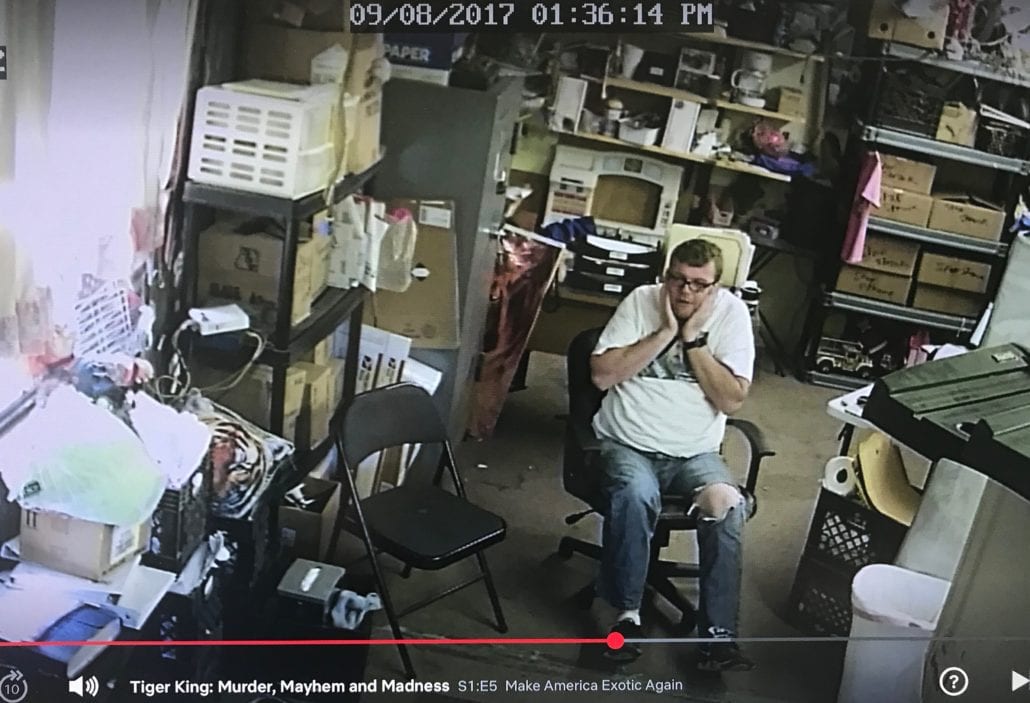Hey There, All You Cool Cats and Kittens!
If you’re like the rest of the Internet, you’ve been glued to your screens feverishly consuming Netflix’s recent docuseries, Tiger King. If you haven’t watched it yet, I promise that there are no spoilers in this post.
Now, I’m a HUGE fan of reality television. The Bachelor? (Hannah Ann definitely dodged a bullet by not marrying Pilot Pete!). Love is Blind? (Awwww, poor Mark!). 90-day Fiancé (Where would I even start?).
Release a show where people are voluntarily making really bad decisions, and I’m hooked! Tiger King totally fits that bill… but on steroids.
Joe Exotic possesses all the qualities for an incredible reality television star: he’s likely narcissistic, flamboyantly eccentric, and an unapologetic self-promoter with a personality that borders on sociopathic. As a result, Tiger King memes are literally burning up the Internet – and a gun-toting, bleach-blonde-mulleted “Joe Exotic” costume is surely going to be THE hit of Halloween 2020.
Netflix’s description of the series as a murder-for-hire true-crime documentary that focuses on big cat zoo owners around the United States, is wholly inadequate. Truly.
The show starts out by introducing you to the sublime world of big cat ownership, and then somehow continues to become even stranger and more bizarre. I think this Tweet sums up the entire viewing experience:
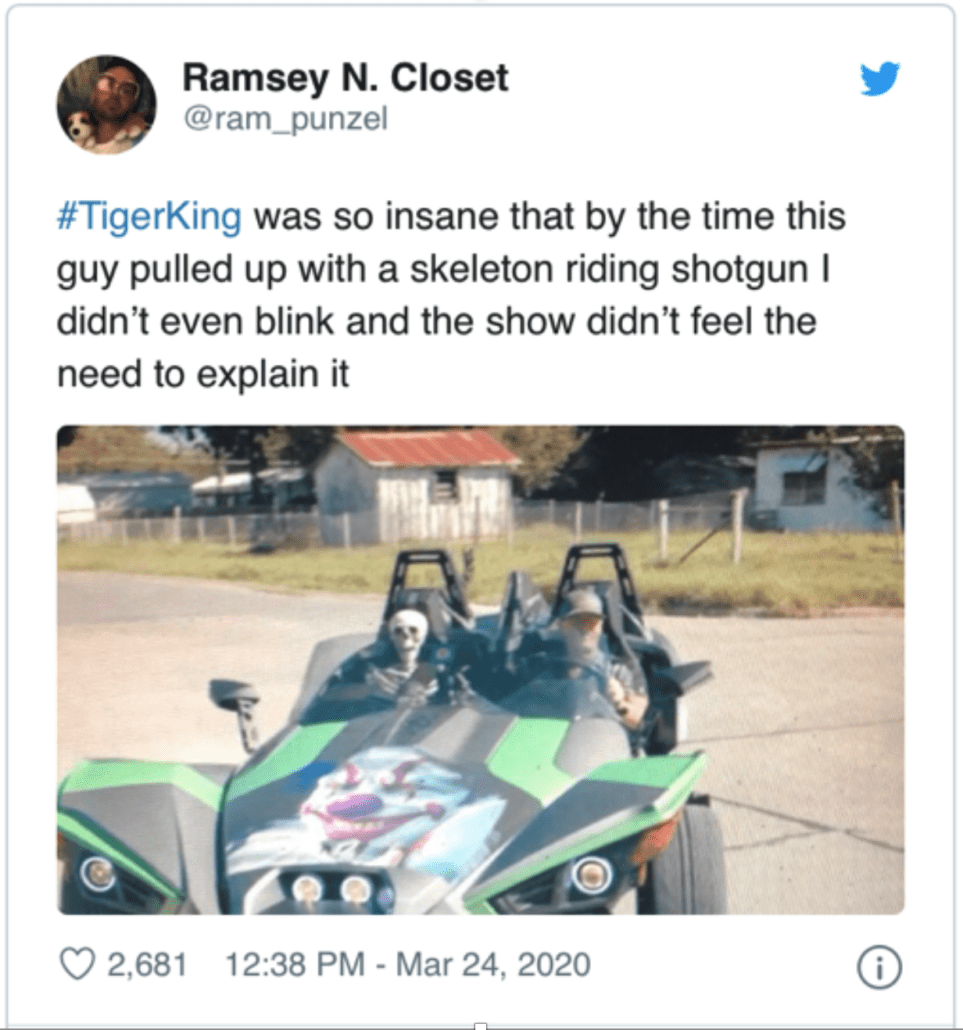
In fact, that Tweet got me to thinking about what I too was possibly overlooking while being mesmerized by all the craziness.
And then it dawned on me… The entire show, while likely shocking to the lay audience, reads like your average, run-of-the-mill law school issue-spotter exam hypothetical. The zaniness of the characters, combined with their loose sense of morality and a penchant for mischief, is exactly the type of stuff law professors dream up to test their students’ legal skills.
For those of you who are about to enter law school, allow me to explain.
Our legal system is adversarial — that is, it pits litigants against one another in a search for truth and justice. The system is designed to avoid the potential for physical violence by providing people with a forum (courts) for the peaceful resolution disputes. As a result, a basic prerequisite for litigants entering the legal system is that they have a legitimate dispute that requires resolution.
Now, clients never come into a lawyer’s office and ask: “Please tell me the rule for contract formation?” or “What are the elements of a tortious battery?” Instead, clients will go to a lawyer’s office with a vaguely defined problem or story with facts that are potentially relevant — but more often irrelevant — to the problem. Lawyers must use their mastery of legal theory to determine if a client’s story presents disputes that can be remedied by a court of law.
Law professors draft exam hypotheticals to replicate what happens in practice. They will provide students with long fact patterns — typically one or more pages in length — containing convoluted facts in which many different characters engage in actions that may, or may not, have legal significance.
When drafting an exam answer, the first step all law students must do is “issue spot” — sift through the fact pattern to identify and “frame” disputes that merit analysis by:
(1) finding facts of legal significance,
(2) identifying parties potentially in dispute, and
(3) determining whether, given the facts, there is a legal theory for which the law provides a remedy.
Once disputes have been framed, law students then have questions to answer and they can begin the laborious process of actually “writing” their response to the hypothetical fact pattern — resolving the framed disputes with arguments for (or against) the application of the offered legal theory.
Spotting disputes is a talent and, like any skill that requires mastery, you need to practice. Top law students take every opportunity to practice issue spotting and framing disputes.
Enter Tiger King – a rambling 6-episode series that is literally exploding with legally significant facts, giving rise to almost infinite liability among the various actors.
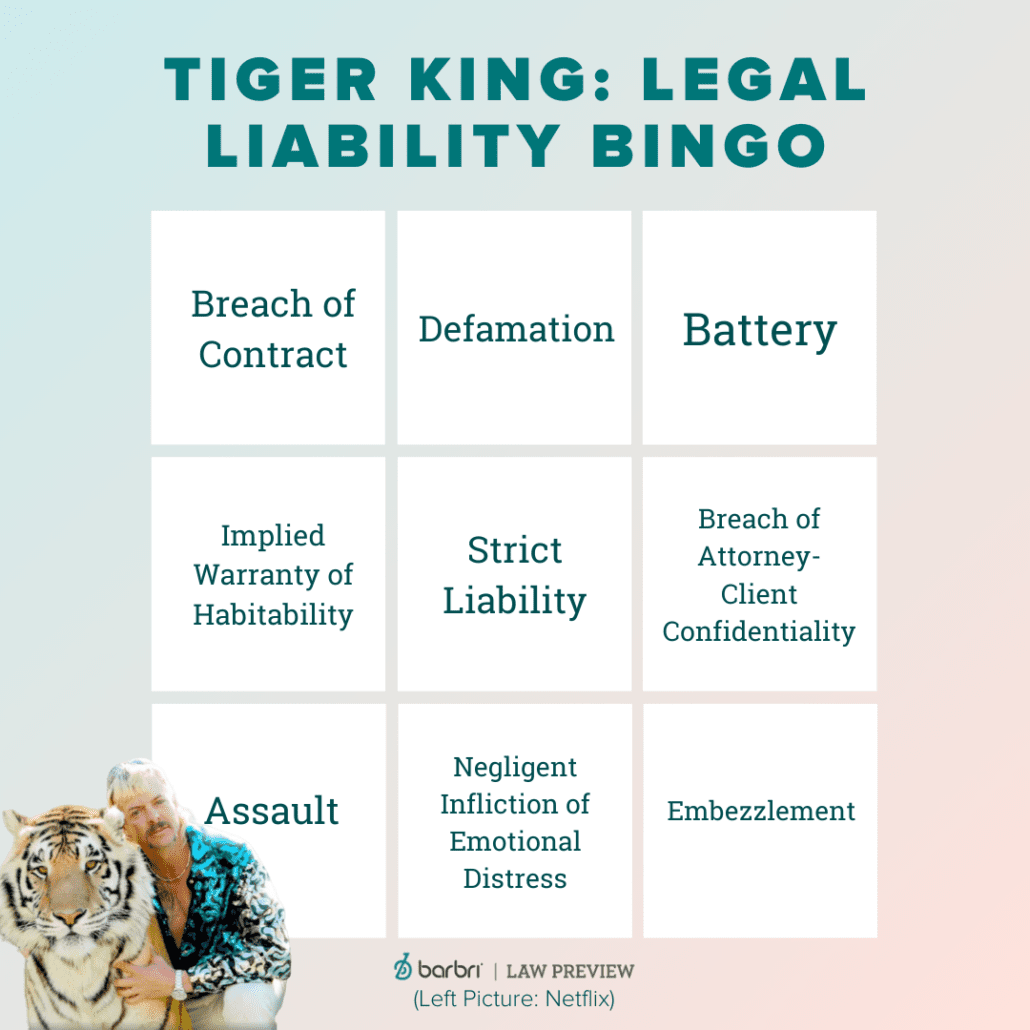
Now, I’m not just talking about the murder-for-hire criminal conspiracy between Joe, Jeff and Allen, or Carol’s trademark infringement claim against Joe for use of the name “Big Cat Rescue Entertainment.” C’mon — that’s the low hanging fruit. If the entire series was an exam hypothetical and you only addressed those two disputes, you’d be lucky to get a “C”.
Top law students know that they are graded on a curve; so, in order to score the top grade they need to frame and address legal disputes that their classmates may overlook.
The Tiger King series could easily be converted to a 1L study aid called “Legal Liability Bingo.” So, when you (re)watch the series, I encourage you to do so carefully and try to identify and frame all the legal disputes that are hiding in plain sight within each episode.
Don’t be shy — tell us what you find by commenting on Law Preview’s Instagram and/or Facebook accounts. I’m expecting that the number of legal disputes raised in the series to easily expand into the hundred’s. Depending on the quantity and quality of your response(s), perhaps you’ll become just as “Internet Famous” and meme-worthy as Joe Exotic.
Here are just ten unaddressed disputes to get you started on your hunt:
Dispute #1
Whether G.W. Zoo can successfully assert a claim for trespass against an animal rights activist who was caught videotaping on it’s property?
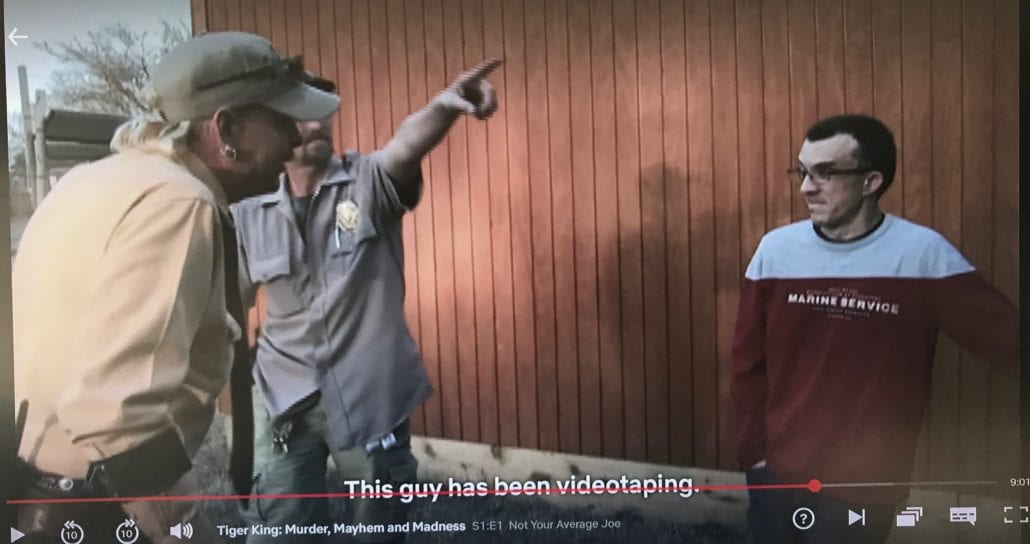
Dispute #2
Whether injured Zoo Employee can successfully assert a claim against the G.W. Zoo for strict liability in tort when she was mauled by a tiger after sticking her arm in the cage?
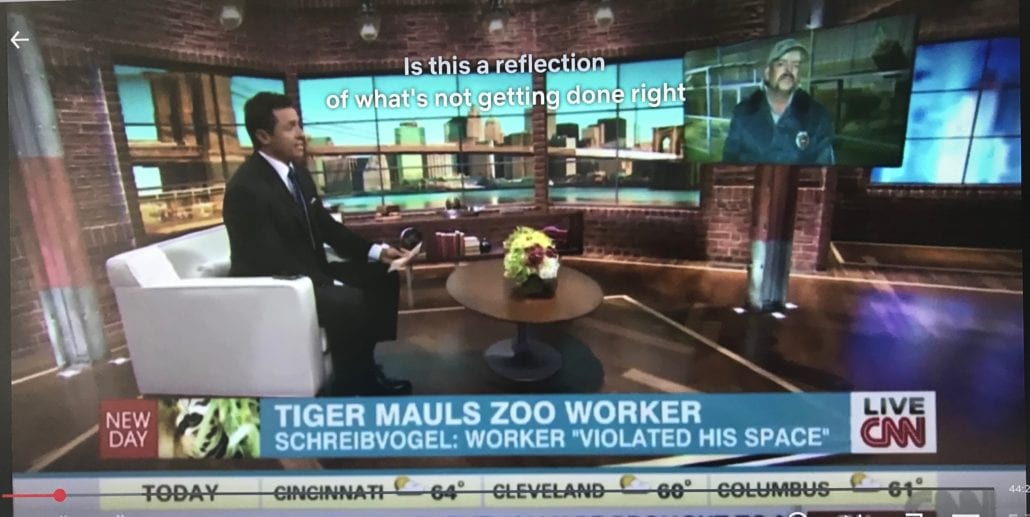
Dispute #3
Whether G.W. Zoo employees can successfully assert a claim for breach of the implied warranty of habitability against the G.W. Zoo because the employee living quarters had rats in the bedrooms, water didn’t run in the bathrooms and temperatures got up to 120 degrees Fahrenheit during the summers?
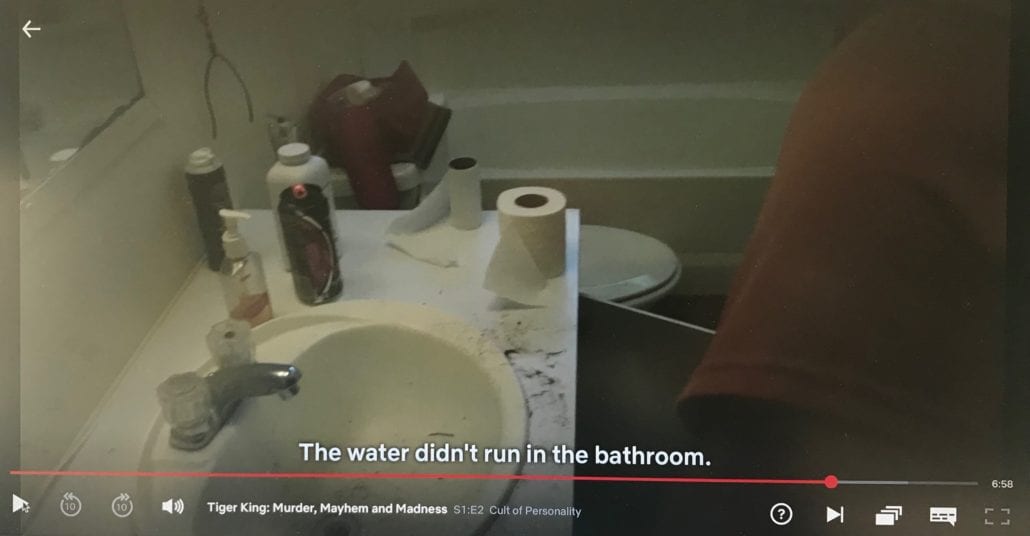
Dispute #4
Whether Carole can successfully assert a claim against Joe for defamation and appropriation of her name, likeness and personality when he featured a look-alike actress in his music video “Here Kitty Kitty.”
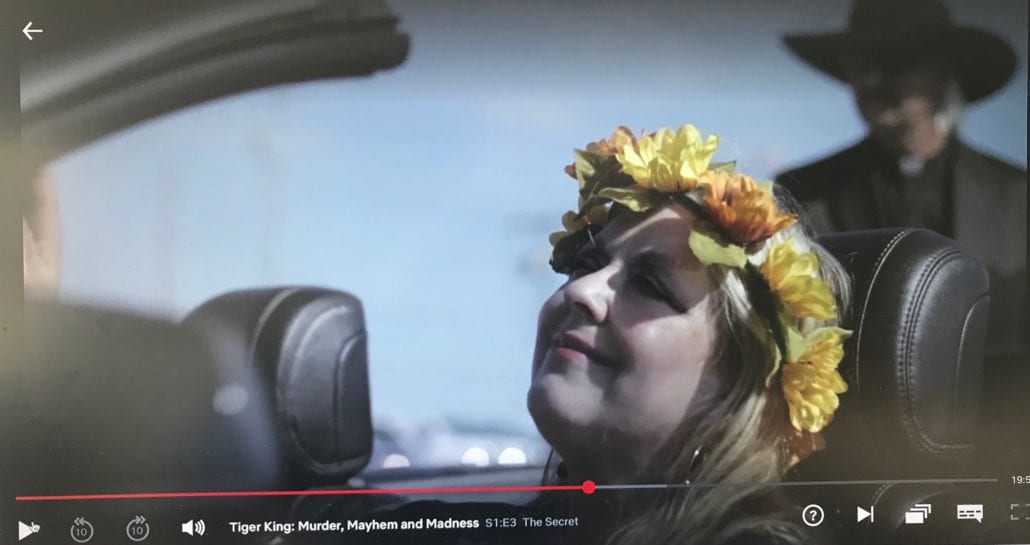
Dispute #5
Whether Joe can successfully assert a claim against Jeff for breach of contract and fraud when he allegedly tricked Joe out of his ownership interest in the G.W. Zoo?
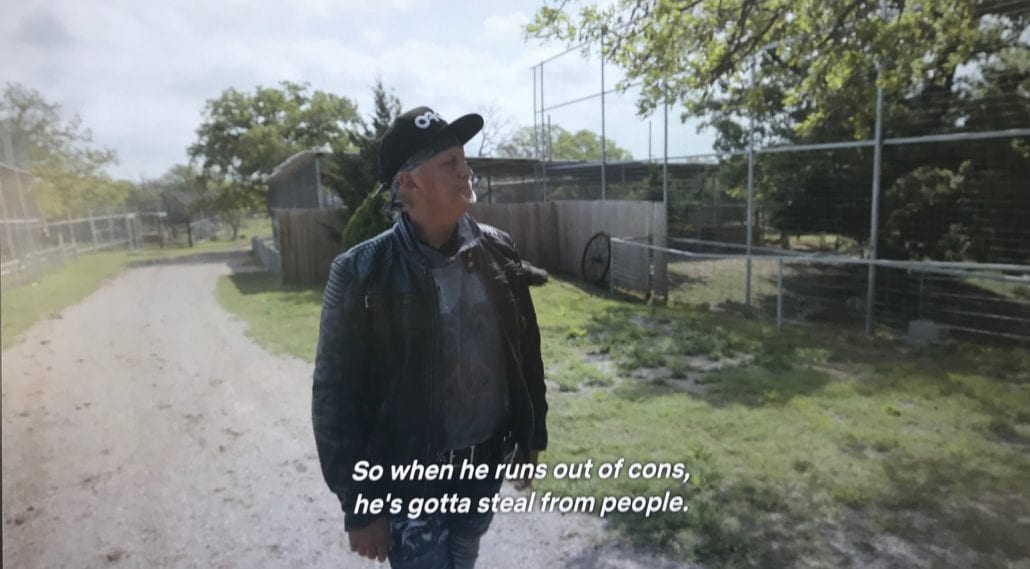
Dispute #6
Whether business guests of the G.W. Zoo can successfully assert a claim for battery when Joe served pizza with expired meat from Walmart?

Dispute #7
Whether Joe can successfully assert a claim against Jeff for battery when Jeff sprayed his shoes with cologne in order to get the tigers to attack Joe while he was in the cage?
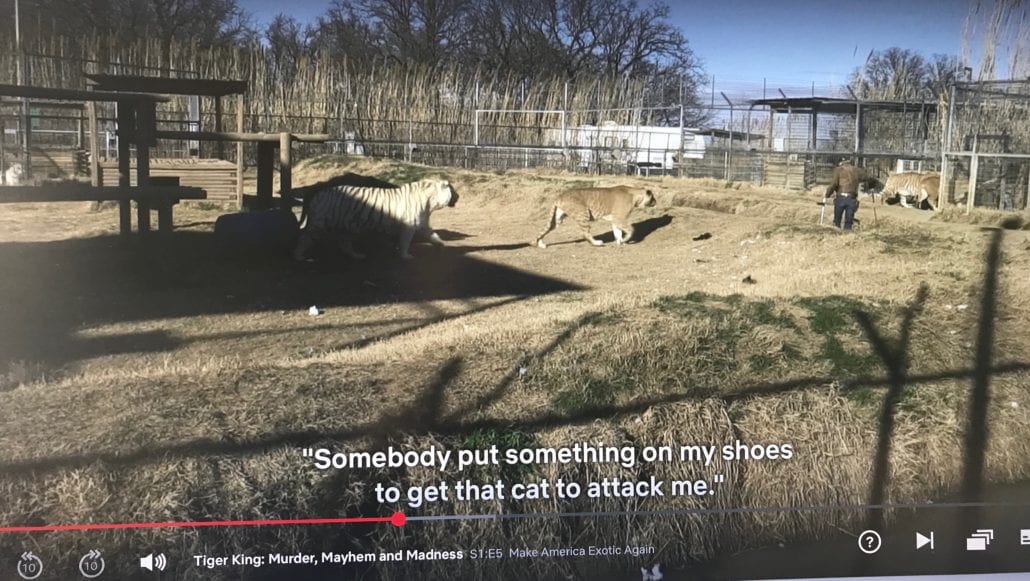
Dispute #8
Whether Joe’s Mother-in-Law can successfully assert a claim for assault when Joe fired a rifle in her direction?
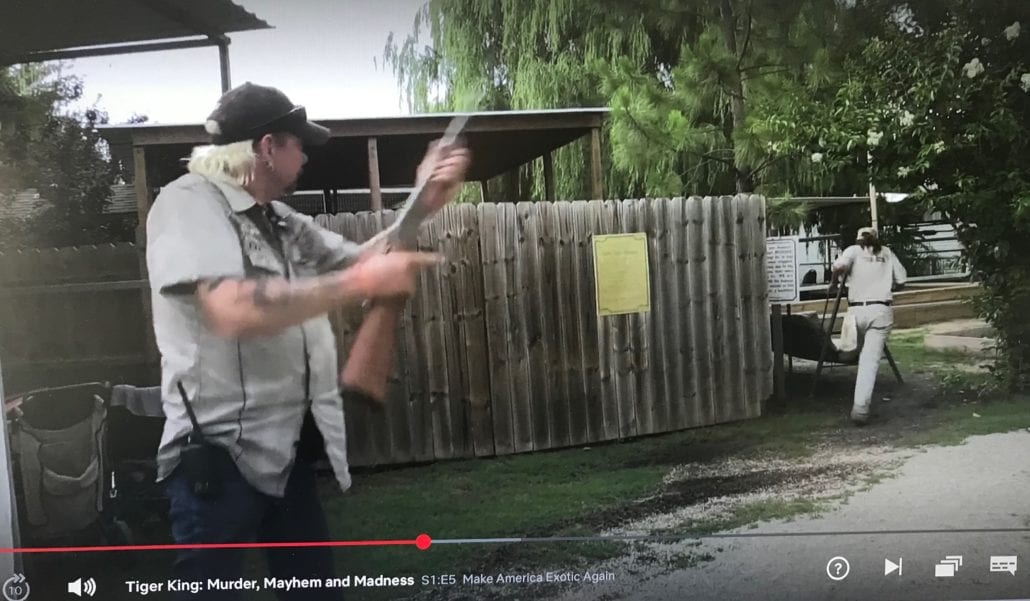
Dispute #9
Whether Don’s Estate can successfully assert a claim against his former attorney for breach of attorney-client confidentiality when he disclosed information he had about Don’s wealth?
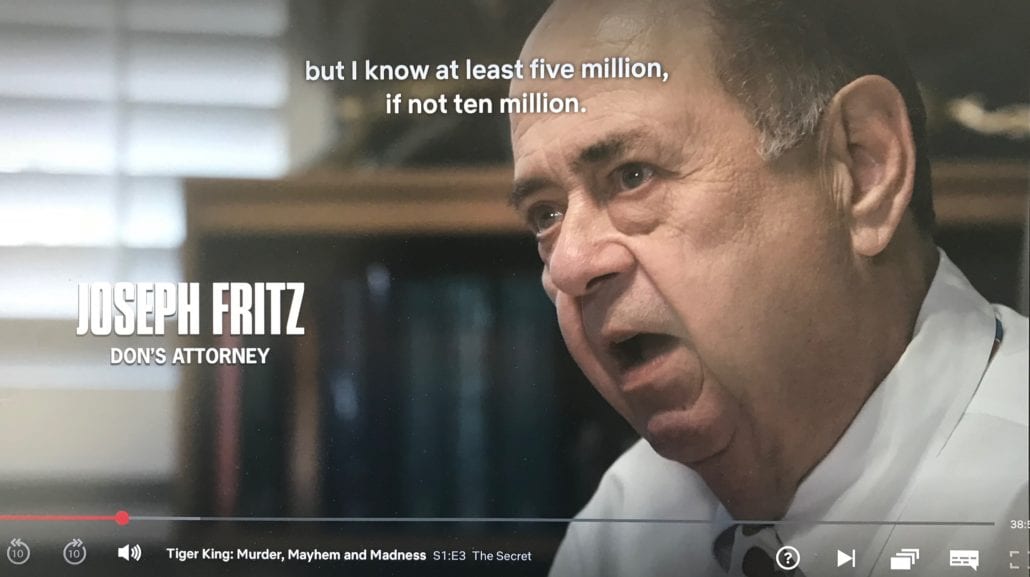
Dispute #10
Whether Joshua can successfully assert a claim against Travis’ Estate for negligent infliction of emotional distress when Travis accidentally committed suicide by pointing a loaded gun to his head and pulling the trigger in Joshua’s presence?
